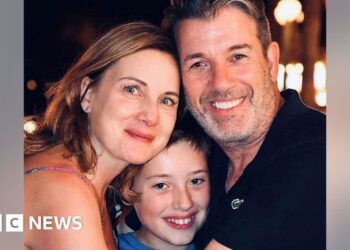The current members of the US Preventive Services Task Force (USPSTF) may be on borrowed time amid news reports that Health and Human Services (HHS) Secretary Robert F. Kennedy, Jr, is considering removing them.
Kennedy reportedly believes the USPSTF focuses too much on social justice, equity, and gender issues, according to news reports. In July, he abruptly canceled its previously scheduled meeting without explanation.
“No final decision has been made on how the USPSTF can better support HHS’ mandate to Make America Healthy Again,” an HHS spokeswoman said in an emailed statement.
Here’s what you need to know about the task force.
1. What Does the USPSTF Do?
The independent task force was created in 1984 to recommend evidence-based preventive services for Americans, including screenings, treatments, and medications. Its recommendations are developed for primary care physicians but are alsoused to create national quality measures, keep clinicians up to date on the latest evidence, and design care alerts for clinicians and patients, according to Alex H. Krist, MD, a former task force chair.
The recommendations “are so trusted that when Congress passed the Patient Protection and Affordable Care Act in 2010, it required private insurers and authorized Medicare and Medicaid to cover preventive services with an A or B USPSTF rating—highest ratings with strongest evidence—at no cost to patients,” Krist wrote in JAMA.
The 16 volunteer members, who serve 4-year staggered terms, are nationally recognized experts in behavioral health, geriatrics, internal medicine, ob/gyn, and pediatrics, among other fields. They are appointed by the HHS Secretary and vetted for potential conflicts of interest, which are posted publicly.
Each year, the task force issues recommendations on 15 or more topics while maintaining more than 140 recommendations on 90 different topics. The panel meets three times a year in person and holds weekly remote meetings.
2. Some USPSTF Recommendations Have Drawn Criticism
In 2009, the task force changed its recommendation on mammograms, stating that women aged 40-49 years should engage in shared decision-making instead of the previously recommended screening every 1-2 years. That drew widespread condemnation and led to decreased screening. The recommendation has since been changed to every other year for women aged 40-74 years.
Urologists and oncologists similarly criticized the task force after a 2018 report gave annual prostate-specific antigen (PSA) testing a C rating for men aged 55- 69 years and a D rating for men aged 70 years or older, arguing that the potential harms outweighed the reduction in deaths.
PSA screenings have dropped precipitously, said Mark Edney, MD, the public policy council chair for the American Urological Association. Fewer screenings have translated into “a significant increase in the presentation of metastatic prostate cancer,” Edney told Medscape Medical News. PSA “is an admittedly imperfect test, but it’s all we have right now,” he said.
Medicare covers one PSA test per year, as do most private insurers, he said.
3. Task Force Survives Legal Challenge, For Now
A group of self-identified Christian employers sued the federal government in 2022, claiming that the task force violated their religious freedom by requiring coverage of preexposure prophylaxis, antiretroviral therapy designed to reduce the risk for HIV. The Supreme Court ruled on Kennedy v Braidwood in June, finding that the task force was constitutional. And the justices agreed with the federal government that the HHS Secretary has the power to appoint task force members and remove them at will.
A decision in favor of the plaintiffs could potentially have ended the mandate requiring no-cost coverage of task force-recommended services. That could still happen, according to an analysis from the Kaiser Family Foundation (KFF).
The court’s decision “will likely not be the final word on the preventive services that the [Affordable Care Act] requires plans to cover free of cost-sharing,” they wrote. KFF analysts noted that the Trump administration had argued that HHS has the ability to “indefinitely delay the implementation of recommendations issued by USPSTF and that the Secretary may have additional authority to supervise and veto Task Force recommendations.”
4. Supporters: Task Force Is Nonbiased, Nonpartisan
Leading medical groups have pushed back against Kennedy’s reported plans to remove current USPSTF members. The task force “plays a critical, non-partisan role in guiding physicians’ efforts to prevent disease and improve the health of patients,” the American Medical Association wrote to Kennedy. “We urge you to keep the previously appointed USPSTF members and continue the task force’s regular meeting schedule.”
Reports that members will be replaced “reflects an alarming erosion in reliance on scientific integrity and evidence-based health expertise in America’s public health
infrastructure and will have grave consequences,” the American Academy of Family Physicians, American Academy of Pediatrics, American College of Obstetricians and Gynecologists, American College of Physicians, American Osteopathic Association and American Psychiatric Association wrote in a joint statement.
A coalition of more than 450 organizations wrote the Senate Committee on Health, Education, Labor and Pensions (HELP) and the House Committee on Energy and Commerce (E&C) to warn against changing the task force structure or mission.
Democratic Senators introduced a resolution supporting the task force, noting that it had “saved hundreds of thousands, if not millions, of lives due to its often simple and inexpensive recommendations.”
5. New Recommendations May Be Slow to Appear
The USPSTF on August 5 issued a draft recommendation advocating that primary care clinicians screen all adults aged 18 years or older for unhealthy alcohol use. But it’s unclear when future recommendations may be released.
According to its website, the task force is finalizing a recommendation for cervical cancer screening, among several other topics. It is also developing draft recommendations for 15 topics, including autism spectrum disorder screening in young children, screening for cognitive impairment in older adults, screening for chronic kidney disease, coronary artery calcium scoring, prostate cancer screening, and interventions for tobacco use prevention and cessation in children and adolescents.
Alicia Ault is a Saint Petersburg, Florida-based freelance journalist whose work has appeared in many health and science publications. You can find her on X @aliciaault and on Bluesky @aliciaault.bsky.social.
Source link : https://www.medscape.com/viewarticle/us-preventive-services-task-force-5-things-know-2025a1000l52?src=rss
Author :
Publish date : 2025-08-08 18:45:00
Copyright for syndicated content belongs to the linked Source.














